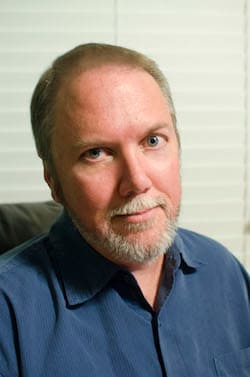 Some say laughter is the best medicine, but I am going to go with music.
Some say laughter is the best medicine, but I am going to go with music.
Music is, to me, therapeutic. It always has been. And also for me, it is a mood-altering, mind and consciousness expanding gateway to a higher state of being. It provides an emotional outlet, whether sitting around noodling on my guitars, performing, or just listening. I can’t imagine a life without music, nor do I want to do so. I assume this is the case with most of our readers, but as they say in car commercials, “your mileage may vary.” My go-to place to enhance or change my disposition at any given time is my iTunes library, my Apple Music subscription, or even pulling out an old trusted vinyl record album and blasting it through my vintage Bose 901s.
Music Therapy is a legitimate practice, the results of which I can attest to, at least on a very personal, anecdotal level. My daughter Kelly, now nearly 24, is on the autism spectrum. As with most autistic children, development was seemingly normal until around age two or so, when she suddenly stopped speaking. Just stares and silence, other than standard toddler crying fits. It was early intervention, and specifically, music therapy, that gave her back her speech. I witnessed this, first hand. It was miraculous to me. If you can imagine looking at your baby in the eyes, speaking to her, and not getting an utterance in return, you can imagine my elation at the results. I used to look at her and say, “Speak to me, say anything.” Oh my, the words she sometimes uses now — but I digress.
The American Music Therapy Association states, “clinical music therapy is the only professional, research-based discipline that actively applies supportive science to the creative, emotional, and energizing experiences of music for health treatment and educational goals.” Music therapy is a “real thing.” It goes above and beyond the general therapeutic nature of music in general. It is also something often under supported in school systems. It is expensive to employ trained, degreed, skilled music therapists when they come in to address needs within an IEP.
Outside of official music therapy programs addressing an IEP for a student, there are other ways music can provide a non-clinical therapeutic approach for students of all needs, specialized or not. I’ve seen programs such as The Rhythmic Arts Project teach children with Downs Syndrome their left hand from their right hand in a matter of weeks, while bolstering their self-confidence as the child takes his or her turn leading the group of other students in “conducting” a drum circle. I’ve seen students who otherwise don’t want to participate in group activities that enhance their social skills jump at the chance to sit in a group and bang on a drum, unaware that their participation is teaching them a world of skills applicable to their general well-being. Is that therapeutic? Well, yes. Is it music therapy per say? No, not really. One has to draw the line in distinguishing between the two. Music educators, band directors, et cetera, are not typically music therapists, though they do jobs that have been the “mental health reason” many countless number of students have bothered to get up out of bed and show up in class each day.
In this issue, we will explore the music and science of music therapy. I hope you find it informative and useful for when you find yourself in an IEP meeting where the idea of music therapy is introduced by the parents, or administration.








